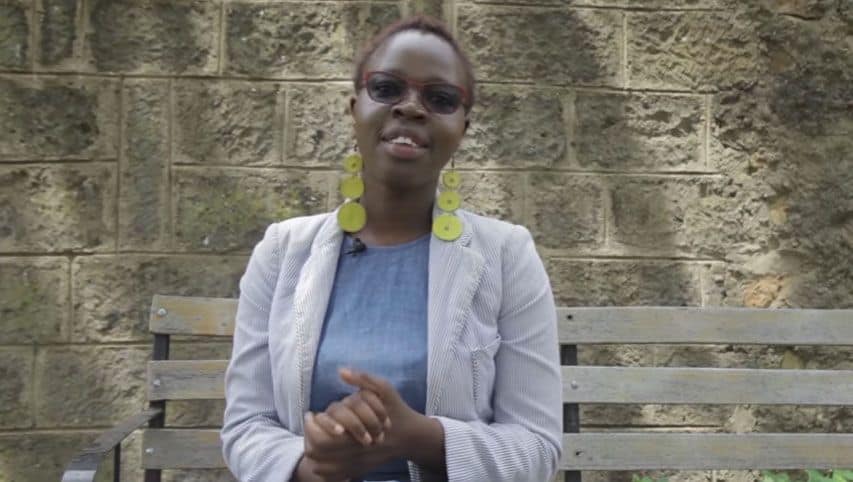The power of shock value can be impressive. Slavery still exists? There are how many you say? But not here! Although the conversation moves on quickly from that opener, the techniques used to keep people informed and engaged on the subject, particularly in the public domain, continue to rely heavily on generating disbelief, outrage, shock or a similar psychological impact. Whilst organisations working in the fields of anti-trafficking and anti-slavery have not questioned whether generating such negative emotion is in fact most effective in securing action and building support, they have begun to think about how in seeking to generate these emotions, the methods used can adversely affect the very goal being sought.
The illustration of the Brookes slave ship, with its human cargo laid out, is widely accepted as being credited with accelerating the progress of the abolitionist movement. However, criticism of its use as a device to mobilise action towards ending the transatlantic slave trade is less widely appreciated. That it depicts victims of slavery as passive and dehumanises them to representations of pain and cruelty applies as equally to some, though by no means all, coverage of modern slavery today.
How many writers or readers consider secondary victimisation, by which survivors’ feelings of violation, shame, disorientation, and loss of control, are re-enhanced through poorly considered coverage or through sensationalising their story? Even with good intentions, some media organisations have further stigmatised these individuals in communications about situations of modern slavery. This is an issue particularly for children, because their perception of themselves is more dependent on how their peers view them.
The potential negative impact on individuals whose stories are not carefully reported and represented is clear. HAART Kenya explained that the repercussions go further than the individual reported with victims reluctant to seek help for fear that the organisation they approach might succumb to the hunger for real life cases, sell their story to the local media and so put them at risk of being ostracised by friends and family.
Rebecca Bender, a survivor of trafficking from the US, speaks about how the sensationalism of modern slavery as a crime that involves being tied or locked up, can prevent victims from self-identifying their own experience as a case of modern slavery. Bender also emphasises that sensationalism in the media can undermine survivors’ credibility as frontline officials fail to recognise more common experiences of modern slavery as what they are.
These concerns are by no means limited to the media but extend to all reporting on modern slavery. Chab Dai and and Liberty Asia, both anti-trafficking organisations founded in south-east Asia, worked with survivors to draw up a Guidance Note to serve as ‘a point of reference for organisations to develop strong practices to honour the rights of victims whilst also ensuring that their voices are heard’. The Note condenses the Guidance into four simple and digestible messages:
1 – Choose respectful images and text.
2 – Select images and text that are representative of the issue.
3 – Respect survivors’ right to privacy and dignity.
4 – Obtain prior consent to use the story, be transparent and accurate.
Good practice is not only important for individuals’ recovery but also for the success of the wider movement, by which I refer to actors seeking to end modern slavery and trafficking. The constant barrage of negative images – just try an image search for human trafficking – is not only misrepresentative of the experience of slavery, it is also disempowering. The process of rehabilitation for survivors becomes challenging and the movement doesn’t look like the right place to nurture recovery. To end modern slavery, we need to inspire citizens to stand up for those in slavery, and demand action from those in power who can make valuable change. But these negative images leave them uninspired and helpless, stalling the growth of a coherent, strong and broad social movement necessary if we’re to make real progress in ending this human rights violation.
This guidance must become mainstreamed within the entire anti-slavery effort. In reviewing Freedom United’s content, we found changes to be made and credit due, unacknowledged. Through our campaign ‘My Story, My Dignity’ we have now turned our attention not on the offenders, but to the influencers – media outlets already recognised for their reporting on modern slavery – with the reach and gravitas to set the tone widely across the media by endorsing the Guidance Note. We have chosen not to give more airtime to poor examples of modern slavery reporting. Rather like reproducing the Brookes image, this tactic would in fact undermine the empowered and dignified approach we are seeking to support, necessary to build a strong and united movement necessary for sustainable progress.
I hope that when looking to the past, we look critically, and think about our part in the debate. There is a long way to go before we have a better informed, broad public that is inspired to do something about modern slavery rather than feel disheartened, demotivated and disgusted. Crucially, if we are to succeed, the movement must be a more welcoming space not only for victims seeking rehabilitation but also for survivors ready to take a leading role in this effort. Increased coverage of modern slavery can be negative if we are not careful about the kind of coverage. Far from helping end it, poor coverage can actually be damaging to the anti-trafficking and anti-slavery effort.
Joanna Ewart-James







-
Follow us on Facebook
5.6M
-
Follow us on Twitter
32K
-
Follow us on Instagram
8K
-
Subscribe to our Youtube
5.7K
Donate